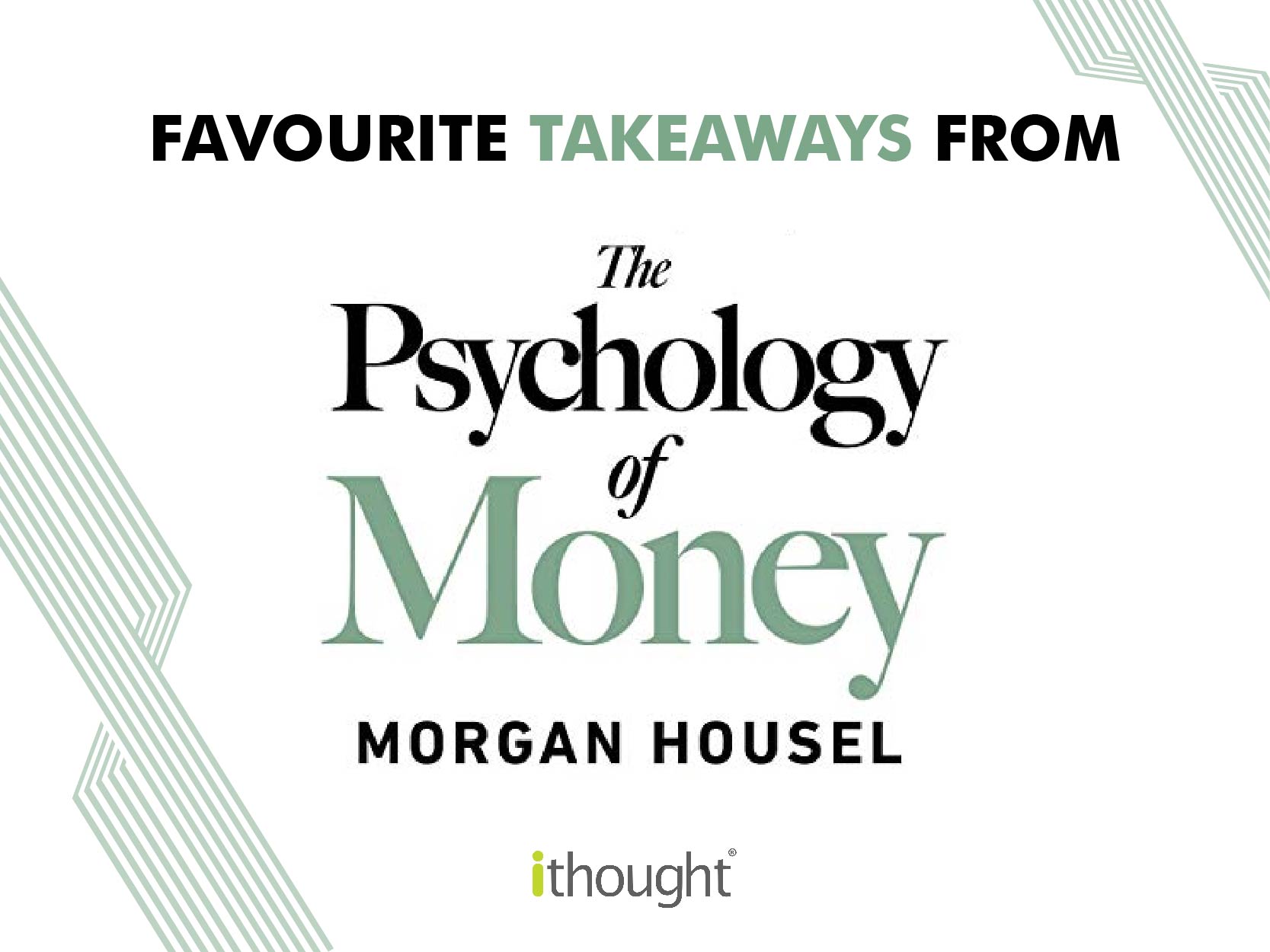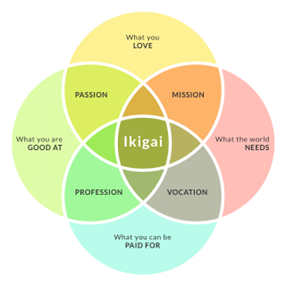
“Psychology of Money” by Morgan Housel is a captivating exploration of the intricate relationship between people and money. The book is structured into 19 concise stories, each addressing different aspects of the way people tend to handle their finances.
We all have unique experiences with investing – everyone looks at money through the lens of their past experiences and that’s okay. Until you live through someone else’s experience you’d never know. Here are three of our favourite catches from the book!
The forces of luck and risk – nothing is as good or as bad as it seems.
Let’s take an example of a person who opts to put his money on a little-known tech start-up. This decision is based on a casual recommendation from a friend over a coffee which left him curious. He digs a little deeper into the company’s potential and decides to buy. Within a decade, the company’s breakthrough product unexpectedly became the industry standard, and its stock price skyrocketed. It started off with a small amount of money that transformed into considerable wealth. Would he have known about the company if not for the coffee break? Maybe not. Here the investor simply benefited from some good luck alongside his efforts that went into the process. The success rate for start-ups is just one in a million and he just got lucky to fall on the other side of risk.
Consider another investor who undertakes intensive studies on promising companies with emerging technology and invests in it. Unfortunately, the stock price tumbles down as a result of unanticipated regulatory changes despite thorough due diligence. In this case, the investor’s loss demonstrates that even very reasonable decisions have the possibility of encountering uncontrollable risks.
This highlights the dual nature of luck and risk in finance. It’s a reminder that not all successes are solely due to skill, and not all losses are the result of poor decision-making. Sometimes outcomes and not always direct results of your actions, external factors beyond one’s control can also have an outsized impact on one’s financial success or failure.
In the book, Morgan Housel takes the example of one of the most celebrated billionaires, Bill Gates, and elucidates the layers of luck and risk behind his success story.
Here’s a wonderful write-up by the author himself from his page “Collaborative Fund” about risk – must read for anyone who wants to expand their perception horizons.
Controlling your time is the highest dividend that money pays.
Everyone will agree to the fact that the greatest privilege is the ability to wake up every morning and say, “I can do whatever I want today.” The feeling of sitting in the driver’s seat with the car in your control rather than sitting in the passenger seat and letting someone else drive the car is priceless.
Everyone’s dictionary might have a different interpretation of what freedom really means. In our pursuit of fulfilment, many of us face a pivotal choice: to earn more and buy time later or earn less to enjoy more time now.
Housel shares his own experience working through this dilemma. While some of us go for higher-paying jobs that involve unreasonable working hours and increased pressure, some of us are okay opting for lower-paying jobs that align with our passion. The pay may be low, but it allows people to reach a point where one’s time is truly the.
In essence, both approaches, whether a higher or a lower paycheck, ultimately aim to achieve the same goal: autonomy over one’s life.
On that note, did you know that Ikigai is a Japanese concept that translates to “a reason for being”? At the intersection of what you love, what you are good at, what the world needs, and what you can be paid for — that’s your Ikigai. As financial freedom calls for a deeper exploration into each of these, we would love for you to try finding your own Ikigai!

Wealth is what you don’t see.
People sometimes misinterpret the thin line between being rich and wealthy. According to Housel, there is no faster way to feel rich than to spend money on nice things but all of us need to realize that when we spend money on things we end up with things and not money.
We are living in an age where flamboyancy has become a norm. The culture of people feeling compelled to display wealth as a measure of success is going off the roof. What does it mean when people say they want to become a billionaire? That they want to be able to spend a billion dollars! In today’s media-driven world, we are all exposed to expensive lifestyles where it’s common to spot people enjoying their exotic vacations and luxury shopping sprees.
Have you come across restocking videos that are taking over social media? It shows influencers organizing their luxurious pantry with some of the best quality items and closets with the latest fashion in store.
For a person who’s working hard to save money and invest for the long term, these videos can trigger a sense of inadequacy or anxiety. She may feel pressure to divert her carefully planned savings towards more immediate, visible signs of affluence to “keep up.” So, then she is forced to choose between looking wealthy and being wealthy. What Housel shows us is that true wealth isn’t always what’s visible. The author takes us through his time as a valet where his witnessed material appearances take precedence over everything. In a culture that often celebrates overt signs of wealth, remembering that the most substantial form of wealth is to be able to afford freedom, choice, and security is key.
Throughout the book, Housel utilizes real-life examples and personal anecdotes to illustrate his insights making them relatable. His style of writing is clear, concise, and devoid of technical jargon, ensuring accessibility for readers with varying levels of financial knowledge. And don’t forget to check out his latest book – “Same as Ever” – a guide to what never changes.